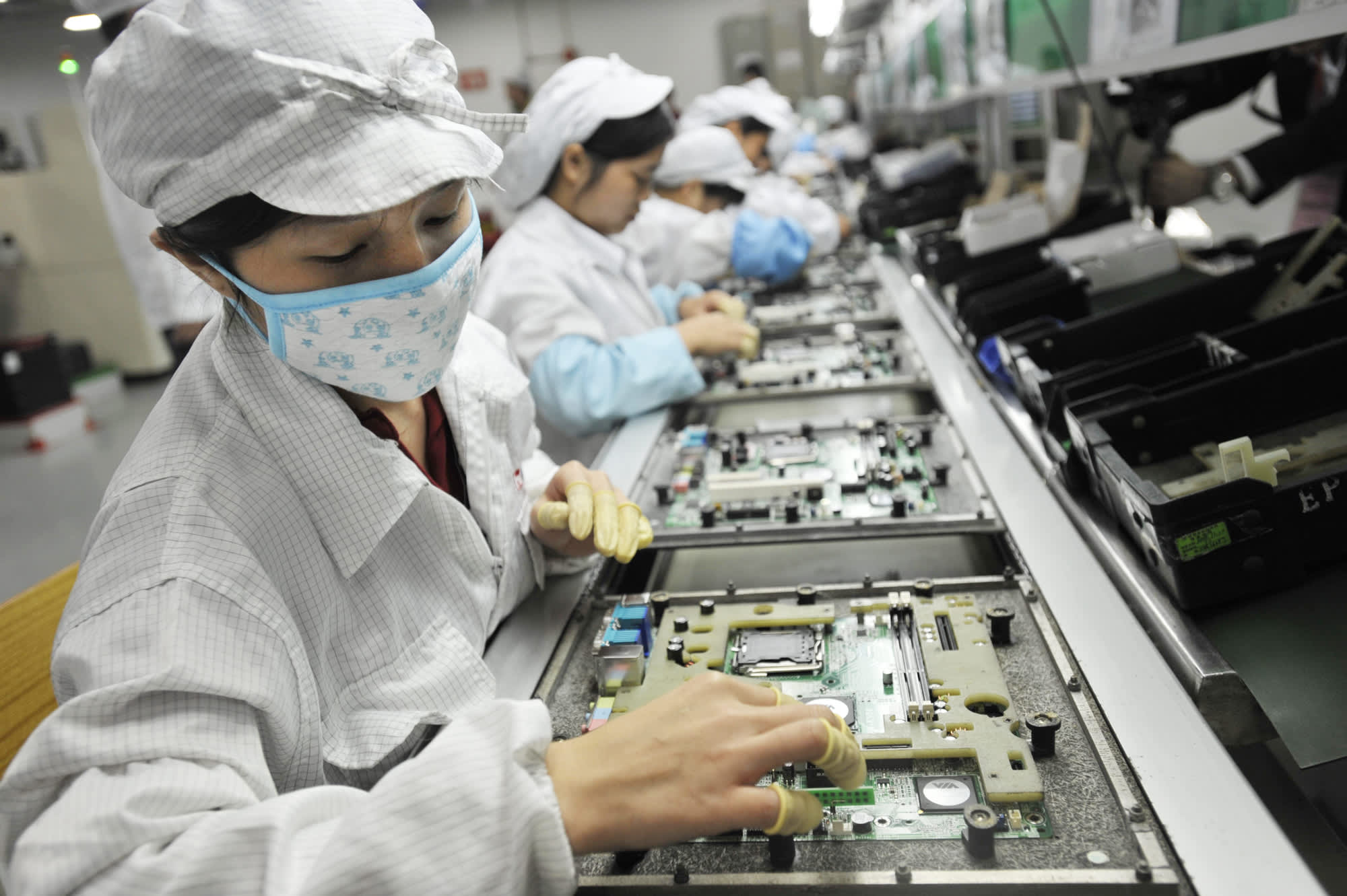China’s spending on research and development hits a record $378 billion

Workers in the Foxconn factory in Shenzhen, China.
AFP | Getty Images
China’s spending on research and development climbed 10.3% to 2.44 trillion Chinese yuan ($378 billion) in 2020, according to the nation’s National Bureau of Statistics.
The bureau said in a press release on Sunday that R&D spend, which looks to develop new services or products, accounted for 2.4% of China’s gross domestic product.
It’s a new record for China but it’s also the slowest incremental growth in five years and down from a 12.5% rise in 2019.
The bureau said that by the end of 2020, China had 522 “national key laboratories” and 350 “national engineering research centers” in operation.
It added that some 457,000 projects were funded by the National Natural Science Foundation of China last year and 3.6 million patents were granted, up from 40% on 2019.
By contrast, the U.S. was planning to spend around $134 billion on R&D in 2020, according to a report from the Federation of American Scientists last March. Official R&D spending figures are yet to be released by the U.S.
Home to significantly less people, the U.K. spent £11.4 billion ($15.9 billion) on R&D in 2020, but it’s planning to more than double spending to £22 billion by 2024 or 2025.
Tech sovereignty push
Washington has imposed several policies over the last few years that are designed to curb China’s rapid growth.
It has blacklisted dozens of Chinese companies and it blocked global chip supplies to blacklisted telecoms equipment giant Huawei last year, citing national security concerns. Huawei has repeatedly denied that its equipment contains backdoors that can be exploited by the Chinese government for espionage purposes.
As the world’s supply chains have become more unstable, China and other nations have taken steps to try to boost their “technology sovereignty” and become more self-reliant on core critical technologies like 5G and semiconductor chips.
“Growing geopolitical uncertainties and the threat of global trade conflicts are questioning the optimism of recent decades concerning the interdependence of our economies,” said Germany’s Fraunhofer Institute for Systems and Innovation Research in a report last July.
China’s National People’s Congress is reportedly set to announce other new measures this week that will further drive China’s ability to innovate independently.